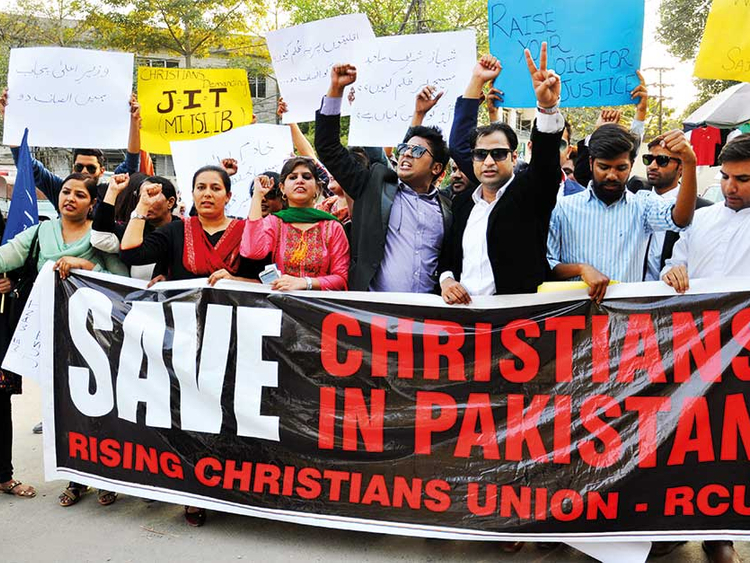After a recent incident involving a Muslim mob setting fire to Christian churches and homes in the country’s east, the blasphemy law in Pakistan has sparked discussion once more. Two members of the Christian community were accused of defiling the Quran by the mob. This episode demonstrates the ambiguous nature of Pakistan’s blasphemy law and its effects on religious minority and broader society.
Two Christians were detained on Friday after being accused of blasphemy, which is a contentious allegation in the country with a large Muslim population. Whether or not they are supported by evidence, accusations of insulting Islam or its Prophet Muhammad can lead to vigilante action, even murder. Pakistani police have detained 146 suspects in connection with the assault on the Christian community in Jaranwala.
Critics contend that the blasphemy law is frequently abused to persecute Muslims and even Pakistan’s minority populations. But what really is the blasphemy legislation, and what effects has it had on the nation?
Understanding the Blasphemy Law: According to Islamic law, insulting statements about the Holy Prophet Muhammad that are made orally, in writing, visually, or otherwise are punished by death, life in prison, and penalties. The law, which had some roots in British colonial administration, rose to popularity in the 1970s and during General Muhammad Zia ul-Haq’s military dictatorship in the 1980s was tightened as a part of an Islamization campaign.
Blasphemy-Related Violence and Convictions: Blasphemy convictions are frequent in Pakistan, notwithstanding the absence of any executions. Vigilante mobs have brutally murdered several people by lynching them before trials. These victims include clerics, politicians, students, and members of religious minorities. Local media and experts estimate that since 1990, blasphemy accusations have resulted in the deaths of 85 persons. Judges frequently report feeling pressured by the threat of violence to win convictions regardless of the available evidence.
Targeting Minorities and Ideological Grounds: Although Muslims are the majority of blasphemy accusers, religious minorities are more at risk. Christians in Pakistan, who make up around 1.3% of the population, have been particularly at risk. Neighborhoods can be destroyed as evidenced in places like Lahore, Gojra, Jaranwala, and Islamabad. Blasphemy cases motivated by ideology have increased as a result of the rise of the far-right Tehreek-e-Labbaik Pakistan (TLP). This party has a history of supporting the beheading of blasphemers.
Challenges and Disputations: The blasphemy legislation has a significant impact. Even political leaders have been known to use accusations as a tool to resolve conflicts. Mainstream discussions on the law have been challenging ever since Punjab Governor Salmaan Taseer, a reform supporter, was assassinated in 2011. The implementation of the law depends on witness testimony, which is frequently tainted by personal animosities.
In conclusion, Pakistan’s blasphemy legislation continues to be a divisive subject that fuels violence and unrest across the country. The law has been a source of persecution, especially for religious minorities, even though it purports to protect religious views. Pakistan’s social structure continues to face difficulties in finding a balance between religious tolerance and individual freedom.

